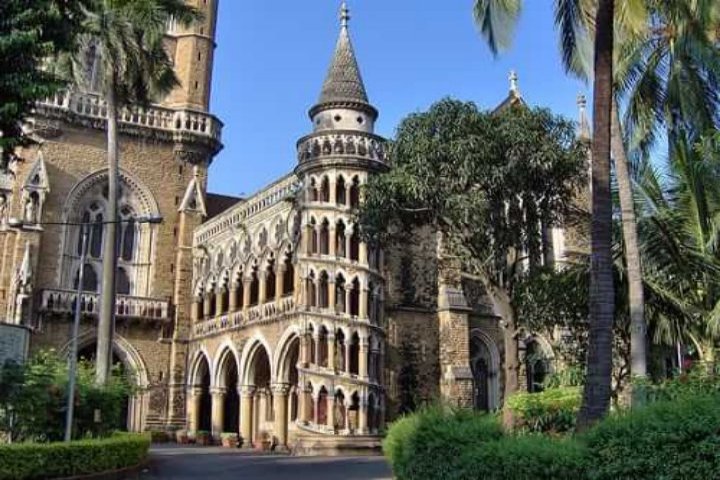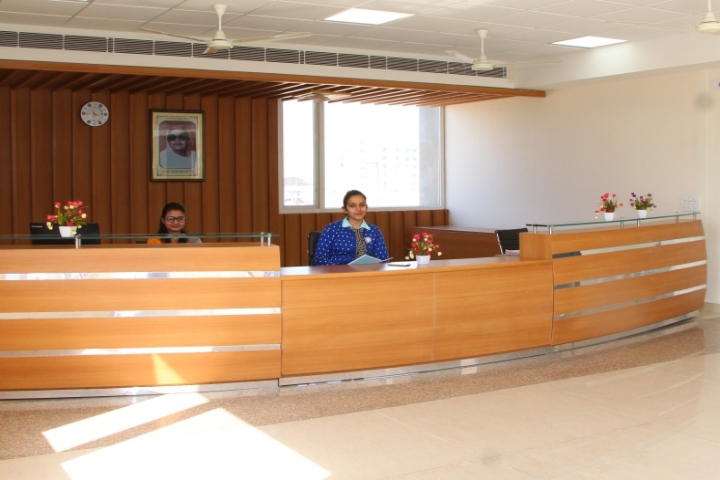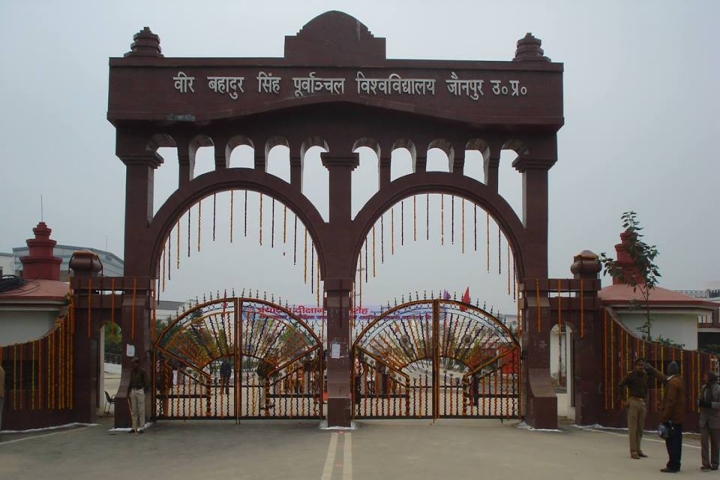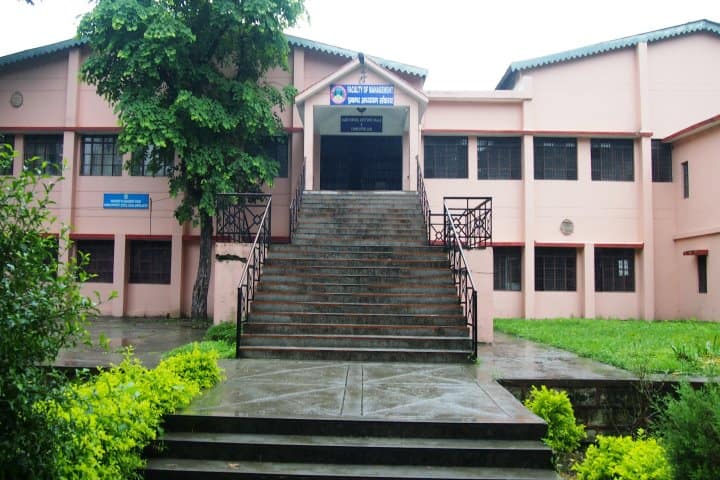
E-Commerce Course Details - Fees, Subjects, Syllabus, Duration, Eligibility, Career Scope
Degrees offered: B.Com, M.Com, B.B.A, B.Com(Hons), MBA
What is E-Commerce
E-Commerce is the buying and selling of products online. It covers online payments, banking, and ticketing. The field is growing fast, with more people shopping digitally. Students learn how online businesses work and gain skills in digital transactions, e-commerce platforms, and managing internet-based business operations.
E-Commerce courses teach digital marketing, supply chain management, consumer behaviour, and web analytics. Learners gain practical knowledge in online retailing, business operations, and technology integration. These programmes prepare students to manage online stores, track digital performance, and understand consumer engagement to improve sales and brand visibility.
Graduates of E-Commerce can work in online retail, web analytics, digital marketing, and e-commerce management. Opportunities also exist in customer relationship management, conversion rate optimisation, and digital entrepreneurship. Over 70 colleges in India offer specialised E-Commerce programmes to prepare students with industry-ready skills and practical experience.
E-Commerce: Highlights
E-Commerce courses help students understand online business operations, digital marketing, and online sales management. Both undergraduate and postgraduate degrees focus on building analytical, technical, and management skills required in the digital marketplace. Graduates can explore various career opportunities in reputed companies. Below are the key highlights of the E-Commerce course.
Particulars | Values |
|---|---|
Name | E-Commerce |
Degrees | |
Duration | UG: 3-4 years PG: 2 years |
Eligibility | UG: 10+2 with 50 per cent aggregate marks PG: Bachelor's degree from a recognised university |
Entrance Examination | UG: CUET UG PG: CAT, MAT |
Average Fees | |
Admission Process | Entrance Examination or Merit-Based |
Job Profiles | Business Analyst, Customer Relationship Manager, E-Business Consultant, Data Administrator |
Top Recruiters | eBay, Flipkart, Amazon, Snapdeal, Alibaba |
Specialisations or Similar Ones
E-Commerce is a growing field that combines business, marketing, and technology. Students can choose from various specialisations based on their interests and career goals. These help them gain in-depth knowledge of digital platforms, consumer behaviour, and online business operations. Mentioned below are some popular specialisations or similar fields in E-Commerce courses:
Digital Marketing | E-Business Management |
Supply Chain and Logistics | Web and App Development |
Data Analytics | E-Commerce Technology |
E-Commerce Law and Policy | |
Financial Management in E-Commerce | E-Retailing and Merchandising |
Top Private E-Commerce Colleges in India
Private colleges offering E-Commerce courses usually have higher fees than government institutions. Eligible candidates must meet the admission criteria set by each college. These institutions provide quality education and industry exposure to prepare students for digital business careers. Below are some of the top private E-Commerce colleges with their fees.
| Top Colleges | NIRF Ranking | Fees |
|---|---|---|
9 | - | |
PSG College of Arts and Science, Coimbatore | 10 | - |
50 | - | |
72 | Rs. 5.80 Lakhs | |
101-150 | - | |
101-150 | - | |
151-200 | - | |
201-300 | - | |
- | Rs. 2.07 Lakhs | |
- | Rs. 1.29 Lakhs |
Note: The fee structure provided above can be for any particular E-Commerce course (Diploma/ Degree).
Top Government E-Commerce Colleges in India
Studying at a public university is generally more affordable than at a private one. It offers excellent infrastructure and high-quality education at reasonable fees. These institutions provide comprehensive programmes and career opportunities. Below, we list the top government E-Commerce colleges in India:
| Top Colleges | NIRF Ranking | Fees |
|---|---|---|
72 | - | |
91 | Rs. 2.07 Lakhs | |
92 | Rs. 45,950 | |
101-150 | Rs. 45,600 | |
151-200 | - | |
- | Rs. 59,380 | |
- | - | |
- | Rs. 1.11 Lakhs | |
- | Rs. 2.96 Lakhs | |
- | Rs. 50,680 |
Eligibility Criteria (UG & PG) of E-Commerce
To get admission to an E-Commerce course, students should meet certain eligibility requirements. They can check the official website of the college to find the eligibility criteria and other course details. Students can also check the programme brochure released by the institutes for further details. Listed below eligibility criteria for UG and PG levels.
E-Commerce Eligibility Criteria of UG Courses
Candidates who seek to get admission in E-Commerce courses at the UG level must fulfil certain eligibility criteria. Only those who have fulfilled these requirements are eligible for admission. While these criteria may vary in certain aspects from university to university, the basic eligibility requirements of the course are listed below:
- Students should have cleared their 12th from a recognised board of education, CBSE, ICSE or state board.
- A minimum average score of 50 per cent is expected by colleges in the qualifying examination
- Students from any stream can apply for admission provided they have met the eligibility requirements.
- Some universities may conduct entrance examinations.
Top Entrance Exams for UG Courses
Aspiring candidates should appear for the respective entrance examinations. Qualifying for this exam is crucial, as it determines their eligibility to enrol in the desired course. The examinations can be conducted at the national, state, or university level. Mentioned below are the popular entrance examinations for undergraduate degrees in E-Commerce.
| Exam Name | Level | Conducting Body | Exam Schedule |
|---|---|---|---|
National | NTA |
E-Commerce Eligibility Criteria for PG Courses
Students who have met the eligibility requirements can apply for a Master’s degree in E-Commerce at the postgraduate level if they are interested in studying further. After the completion of a bachelor’s degree, students are eligible for a postgraduate degree in E-Commerce.
- Students must require a bachelor’s degree in E-commerce or a similar discipline from a reputed institution.
- Various colleges accept graduation degrees in economics, honours in accountancy and business management studies.
- The student must possess a minimum of 45-50 per cent marks in a bachelor’s degree.
- National, university and state-level entrance examinations are also conducted in some universities get admitted into top-notch institutions.
Top Entrance Exams for PG Courses
Admission to postgraduate courses in E-Commerce relies on entrance exam scores. These exams assess candidates' aptitude in relevant fields and play a crucial role in determining admission to esteemed institutions offering specialised programmes. Details regarding these exams are furnished in the table below:
| Exam Name | Level | Conducting Body | Exam Schedule |
|---|---|---|---|
National | IIM Lucknow | ||
National | All India Management Association |
Scope of E-Commerce in India and Abroad
The e-commerce sector in India is expanding rapidly, offering extensive career opportunities. In 2024, the market was valued at around USD 147.3 billion (INR 12.2 lakh crore approx.) and is expected to reach USD 450.8 billion (INR 37.3 lakh crore approx.) by 2030, growing at a rate of 31.1 per cent per year. (Source: OpenPR)
E-Commerce courses open up promising career paths for students in areas like online retail, digital strategy, and business analytics. With more companies expanding online, graduates gain practical skills to manage digital operations, improve customer experiences, and contribute to business growth, making them highly sought-after in the modern job market.
Course Fees E-Commerce
| Minimum Fees | Maximum Fees | |||
|---|---|---|---|---|
| Private | Government | Private | Government | |
| UG | ||||
| PG | ||||
| DIPLOMA | ||||
Course Subjects
The syllabus for E-Commerce courses covers key subjects like Digital Marketing, E-Commerce Platforms, and Data Analytics. The curriculum provides practical and theoretical knowledge to help students understand online business operations. For complete details, candidates should refer to the official college website. This section covers the syllabus for both UG and PG E-Commerce courses.
E-Commerce Syllabus for UG Courses
The undergraduate syllabus for E-Commerce courses may vary across institutes and degrees, covering key topics in business, finance, and technology. The course helps students understand digital business operations and online trading systems. Below is the syllabus of PSG College of Arts and Science for its B.Com E-Commerce programme.
Semester 1 | Semester 2 |
Tamil / Hindi / French – I | Tamil / Hindi / French – II |
Communicative English – I | Communicative English – II |
Financial Accounting – I | Financial Accounting – II |
Computer Practical I – Desktop Publishing | Computer Practical II – Excel & Tally |
Mathematics (Allied – MA) | Practice Workshop – I |
- | Statistics (Allied – ST) |
- | Ability Enhancement Compulsory Course – I Value Education |
Semester 3 | Semester 4 |
Cost Accounting | Corporate Accounting – I |
Income Tax | Business Law |
Basics of e-commerce and m-commerce | Marketing |
Fundamentals of C & C++ | Java Programming |
Computer Practical III – C & C++ | Computer Practical IV – Java Programming |
Business Economics (Allied - COM) | Practice Workshop – II |
Environmental Studies | Operations Research (Allied - ST) |
- | Information Security |
Semester 5 | Semester 6 |
Corporate Accounting – II | Management Accounting |
Visual Basic .NET | Discipline Specific Elective Course – II |
Computer Practical V – Visual Basic .NET | Introduction to ERP |
e-Services (or) Management Information System | Logistics Management |
Financial Management | Web Programming |
Introduction to Mobile Application Development | Computer Practical VI – Web Programming |
Internship | Practice Workshop – III |
Generic Elective Course - EDC | Project Work |
- | NCCC - Non CGPA Credit Course |
E-Commerce Syllabus for PG Courses
The postgraduate E-Commerce course lasts for two years and is divided into four semesters. The curriculum covers subjects such as Strategic Management, Cost Accounting, Management Accounting, Internal Marketing, and Customer Relationship Management (CRM). Below is the PGDM E-Commerce syllabus from Welingkar Institute, Mumbai.
Semester 1 | Semester 2 |
Principles of Management | Strategic Management |
Financial Accounting | Cost Accounting |
Human Resource Management | Innovation Management |
Marketing Management in the Digital Era | Mastering Life Skills and Successful Interview Preparation |
Managerial Economics | Legal Aspects of Business |
Organisational Behaviour | Project WeLike |
Semester 3 | Semester 4 |
Starting an E-Commerce Venture – I | Venture Capital & Crowdfunding |
Starting an E-Commerce Venture – II | Logistics Management in E-Commerce |
Financial Technology Solutions | Customer Relationship Management (CRM) |
Internet Marketing | Social Media Marketing |
Business Analytics | Project Work |
Careers in E-Commerce
E-Commerce helps students develop both technical and soft skills while building a rewarding career. It is used in sectors like retail, travel, education, and online services. Career roles involve marketing, management, supply chain, and finance. Below are some job profiles in E-Commerce for reference:
Job Profile | Description |
|---|---|
E-Business Consultant | E-Business Consultants advise companies on online business strategies. They analyse digital operations, recommend improvements, and help increase revenue through e-commerce solutions. |
Supply Chain Managers oversee the flow of goods and services. They coordinate logistics, inventory, and suppliers to ensure timely delivery and cost efficiency. | |
Project Manager | Project Managers plan, execute, and close projects successfully. They coordinate teams, manage resources, and monitor progress to meet deadlines and objectives. |
Database Administrator | Database Administrators maintain and manage databases. They ensure data security, performance, and accessibility for smooth business operations. |
Business Analysts study data, identify patterns, and provide insights for business decisions. They help companies improve efficiency and profitability through analysis and reporting. | |
Customer Relationship Manager | Customer Relationship Managers manage client interactions, ensuring satisfaction and loyalty. They develop strategies to strengthen relationships and resolve customer issues effectively. |
Upcoming trends
The E-Commerce sector is expanding rapidly, driven by digital adoption, technological advancements, and evolving consumer behaviour. The industry remains highly dynamic, with trends closely linked to online shopping patterns, data analytics, and technology integration. Some current and upcoming trends in E-Commerce include:
- Mobile Commerce and Apps
- Personalised Shopping Experiences
- Artificial Intelligence and Chatbots
- Voice Commerce and Smart Assistants
- Augmented Reality Shopping
- Omnichannel Retail Integration
- Social Commerce and Influencer Marketing
- Sustainable and Eco-Friendly Packaging
Job Profiles and Top Recruiters
Graduates with an E-Commerce degree can work in healthcare companies, research institutions, hospitals, academic institutions, and rehabilitation centres, handling online platforms and digital strategies. Opportunities also exist in sports organisations and wellness centres. Mentioned below are some of the top recruiters in the field of E-Commerce.
Top Recruiters
- eBay
- Flipkart
- Amazon
- Snapdeal
- Alibaba
- Myntra
- Paytm
- Yahoo
Average Salary
Salaries in E-Commerce may vary depending on the location, job position, and level of experience. Graduates with strong technical skills and updated knowledge often earn higher packages. The sector offers diverse career opportunities across digital marketing, online business, and analytics. Below are the average salaries for some job roles:
| Job Profiles | Average Salary (LPA) |
|---|---|
E-Business Consultant | Rs. 11.7 LPA |
Supply Chain Manager | Rs. 15 LPA |
Project Manager | Rs. 17.7 LPA |
Database Administrator | Rs. 7.5 LPA |
Business Analyst | Rs. 9.8 LPA |
Customer Relationship Manager | Rs. 3.9 LPA |
Source: AmbitionBox
Required Skillset for E-Commerce
An E-Commerce course equips students with a comprehensive understanding of online business operations and digital marketplace strategies. This programme covers various aspects of e-commerce, preparing individuals to effectively manage and innovate in the digital economy. The following are the skills required for pursuing this course:
- Writing
- Data Analysis
- Development Skills
- Marketing Automation
- Search Engine Optimisation
- Design
Course Curriculum for E-Commerce
E-Commerce courses are designed to provide both theoretical and practical knowledge. The curriculum includes subjects on computer applications, programming languages, digital marketing, finance, management, and economics. Students learn how to apply these concepts effectively in online business environments, preparing them for careers in the rapidly growing e-commerce sector.
Graduates develop technological and managerial skills essential for handling online marketing, sales, and operations. With the rise of digital businesses globally, skilled professionals can find opportunities in e-commerce management, web analytics, supply chain, and digital entrepreneurship. Success in this field depends on staying updated with emerging technologies and market trends.
Popular E-Commerce Entrance Exams in India
Frequently Asked Questions (FAQs)
Question: Who are the top recruiters for E-Commerce graduates?
Answer :
Top recruiters include companies like Amazon, eBay, Google, Snapdeal, Myntra and Paytm.
Question: What are the career prospects after completing the course?
Answer :
Graduates can pursue various careers such as digital marketing, e-commerce management, web analytics, and online retailing.
Question: What does the E-Commerce course cover?
Answer :
The course covers a range of topics including digital marketing, e-commerce platforms, consumer behaviour, web analytics, supply chain management, and online retailing.
Question: Do E-Commerce courses offer practical experience?
Answer :
Yes, many programmes include internships, projects, and practical training to provide hands-on experience in the field.
Question: What is the duration of the E-Commerce course?
Answer :
The duration of the course typically ranges from three to four years for an undergraduate programme. Postgraduate programmes usually take one to two years.








.jpg)











